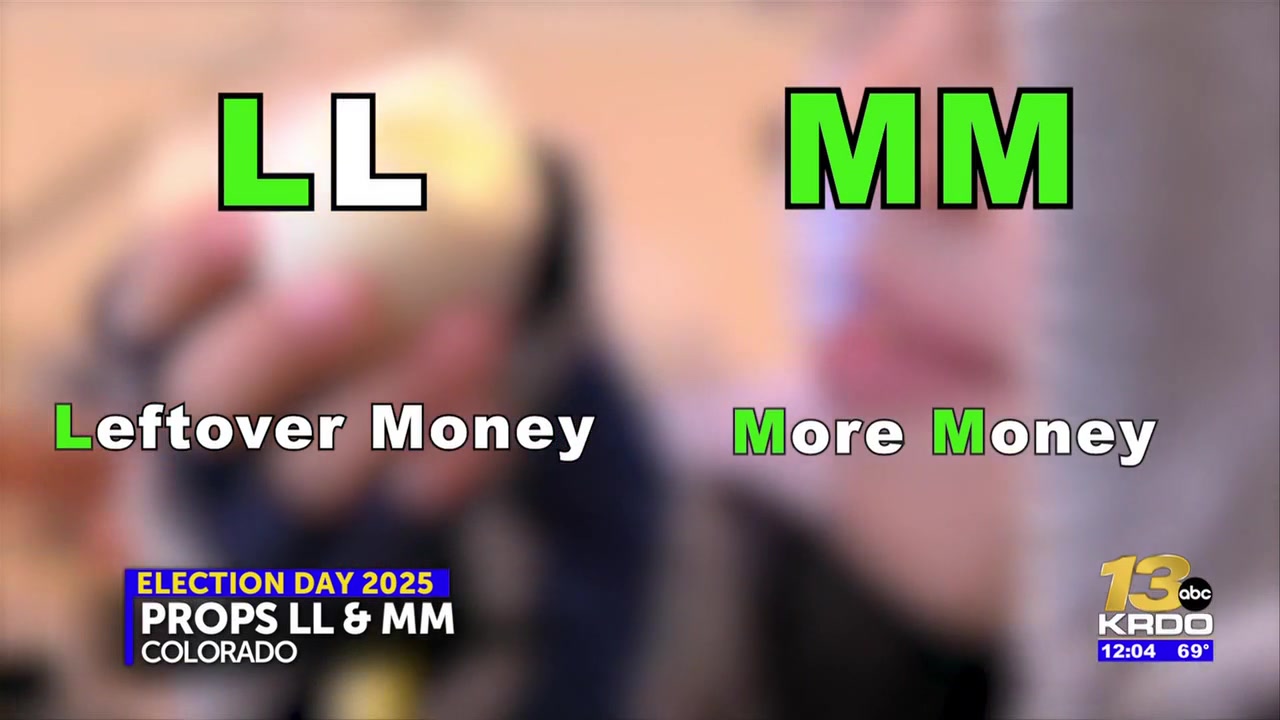Colorado voters secure ‘Healthy School Meals for All’ passing propositions LL and MM

Bradley Davis
COLORADO (KRDO) – Coloradans passed Propositions LL and MM, which will support the continuation of free school meals, according to Colorado Democrats.
“Colorado voters sent a clear message tonight: no child should ever have to learn on an empty stomach,” said Colorado Democratic Party Chair Shad Murib.
Two tax initiatives were on your ballot on Tuesday about the state’s “Healthy School Meal for All” program. Here’s a quick breakdown:
“Yes” on MM: Voting for a tax increase on households making over $300,000 to continue the “Healthy School Meals for All” program.
“Yes” on LL: Voting that the state can keep over $12 million in excess revenue from the first Healthy School Meals for All tax proposition that passed in 2022.
When the Healthy School Meals for All program passed in 2022, it allocated just over $100 million in new tax revenues to provide school meals to children at no cost for families who opt in, rather than just families who qualify as low-income. The state underestimated the amount of revenue the new tax would generate and was now asking voters to approve Proposition LL, which allows it to retain the additional funds.
“With the federal uncertainty around federal food assistance, one place kids know that they’ll for sure have, a good meal, regardless of what happens in Washington, regardless of everything, what we can control is making sure that those kids know they’ll have a good meal at school,” Save the Children spokesperson Ana Bustamante said in a previous interview with KRDO13.
While the revenue exceeded expectations, so did the costs. The program was also supposed to raise wages for school workers and buy fresh ingredients from local Colorado farmers for the schools. Neither happened.
The state said the money came up short because more students opted in than expected, and inflation drove up food costs. It said the money partially covered the meal reimbursements, as well as administrative costs.
The new plan, MM, outlines the same goals as the old plan. But the proposition warns that the wage increases and local food purchases could be cut again if the money still comes up short after the tax increase. If there is any leftover money, the state said it will go to funding SNAP benefits.
The Colorado GOP opposed both propositions. On Facebook, the group said the program was “unsustainable from its inception.” It also referenced how the state would still fund free and reduced lunches for qualifying low-income students if both initiatives fail.
No individuals or households that make under $300,000 a year will see a change in their taxes. Out of affected taxpayers, those who make less than $500,000 a year would pay about $200 in taxes toward the program. Taxpayers who make over $1 million a year would pay around $1,500.
You can find the entire tax breakdown here.